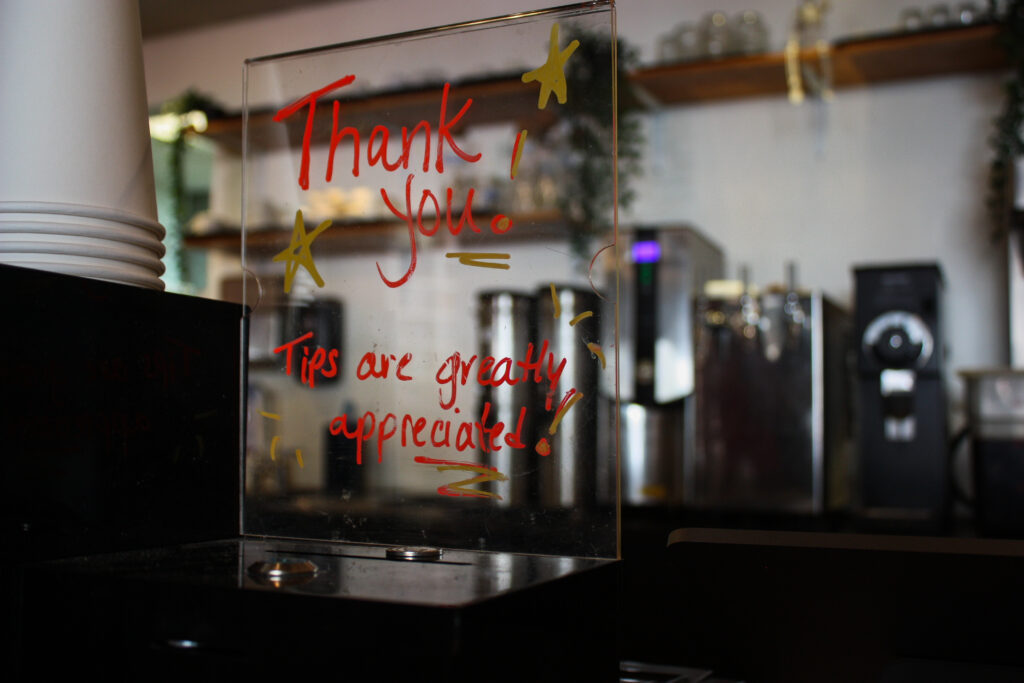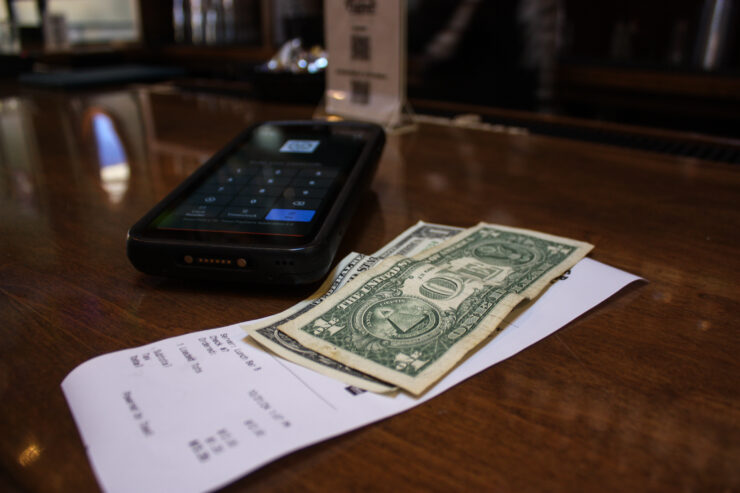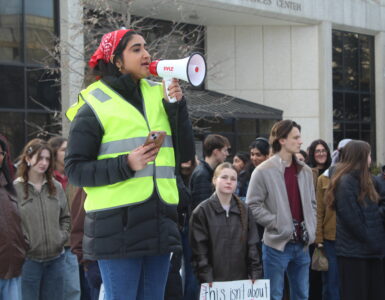With the presidential election nearing, Vice President Kamala Harris and former President Donald Trump still agree on one thing: cutting taxes on tips.
Both candidates pledge to have “no tax on tips,” a plan economists call good politics but bad policy. Despite financial experts’ opposition, some servers are still pushing for “yes.”
The catchy pledge would still need to go through congressional approval. Experts suggest it is unlikely this tax proposal will get endorsed. Besides, it may not be ready for prime time.
“Oftentimes tax rules sound good in theory, but in practice perform poorly, the rules will end up missing the people you want to help and helping people you want to miss,” said Steven Rosenthal, a senior fellow at the Urban-Brookings Tax Policy Center.

How tip talk entered the election
On June 9, Trump proposed tip legislation that would eliminate taxes on tips for hospitality workers.
The promise was first made at a campaign rally in Las Vegas, a hot spot for service-industry workers. According to the U.S. Bureau of Labor Statistics, serving-related jobs make up 14.8% of employment, the highest percentage among all jobs. Two months later, Harris swiftly followed her opponents’ no-tax push before a Las Vegas crowd.
Trump has said he would eliminate federal and payroll taxes, but his campaign has not specified the logistics of his promise.
Harris pledged to raise the minimum wage and put a $75,000 income limit on servers and others to prevent potential tax fraud.
Tax on tips is a complicated issue that varies across the country.
In many states, employers are not required to pay tipped workers minimum wage, but they are required to pay staff a lower tipped hourly rate of at least $2.13, known as the tipped minimum wage. Many Southern states like Texas, Tennessee, Utah, and Virginia also pay a minimum of $2.13.
Roxy Ulloa, a 25-year-old bartender at a popular bar in Adams Morgan, supports eliminating the tax on tips.
“You’re relying on tip money to make up for the money you’re not making per hour,” Ulloa said. “When you get taxed on that tip money, it’s like [digging] into your minimum wage at the same time … because we’re being taxed on our hourly and then taxed on our tips. It feels like double taxation, making us earn less at the end of the day.”
Companies must ensure their employees earn enough tips to meet their state’s hourly wage. However, the U.S. Department of Labor recovered over $273 million in back wages and damages for nearly 152,000 workers, highlighting that not all tipped workers earn enough tips to meet the requirement.
Simone Barron, co-founder of Full-Service Workers Alliance of Seattle, said that despite working extra hours, having a higher minimum wage, and having a busy restaurant, the current tax on tips makes it difficult to sustain a living.
“I worked nearly 40 hours a week, I couldn’t make enough to cover my bills because I had to share all my tips with other employees,” Barron told the Workforce Protections Subcommittee in a September hearing.
Who is the real expert?
Farzad Pouya, a seasoned part-time server in D.C., said he was frustrated with the little amount of money he takes home after state taxes, federal taxes, and tips.
The server said he and other staff at his restaurant are working harder to ensure their tips are higher to increase their take-home amount.
Hospitality workers emphasize their firsthand experience should make them experts to politicians and economists. But they fear that their voices are being overlooked in these tax discussions.
“The one thing missing from both sides is a third voice, and that’s the voice of the working people,” Barron said. “We’re not taken as experts in the field that we actually work in. I don’t know why.”

Analysts worry that another consequence would be customers cutting back on tips.
Alex Muresianu, a senior policy analyst from the Tax Foundation, told The Wash that eliminating tax on tips could harm tipping culture.
“On the one hand, you could imagine people tipping less because they know their tips aren’t going to be taxed,” Muresianu said.
Rosenthal, who also worked as a congressional staffer drafting tax rules, argues that no tax on tips would also create unfair imbalances among low-income workers, such as fast-food staff and delivery drivers.
Rosenthal said eliminating the tax on tips doesn’t solve financial problems for low-income workers. Instead, it only garners votes from them.
“Exemption for tax tips is not about good tax policy; it’s about good politics,” Rosenthal said.
Despite who takes office, servers said they can only hope the tax policy will be pushed through and receive congressional support, but economists hope otherwise.
“Let’s hope that whatever happens in Vegas stays in Vegas,” Rosenthal said.















Add comment